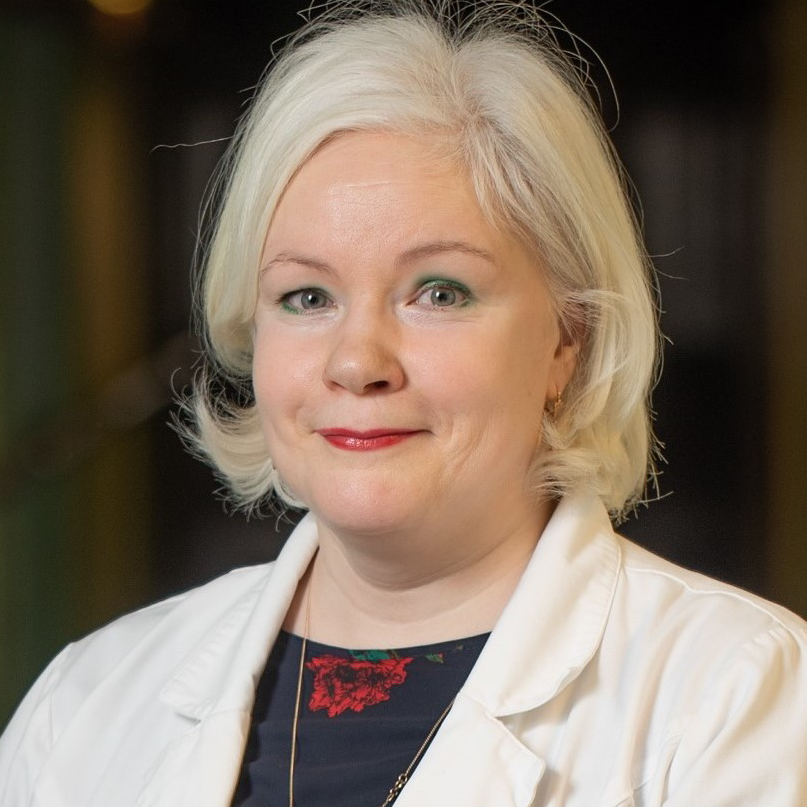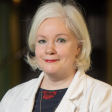Health Care
Programme Fact File
Health Care
accredited until
Doctoral Degree (PhD) in Medicine and Health Sciences
Aim
The programme aims to prepare highly qualified scientists and academics in the fields of medicine, pharmacy, and psychology by using an integrative and complementary approach. The approach allows for addressing challenges related to human health in order to implement and independently manage research projects at both a national and international level. The aim is also to develop academic competence to ensure education continuity and sustainability.
Objectives
- To provide doctoral students with an opportunity to acquire enhanced competences in an interdisciplinary and multidisciplinary context in order to carry out field-relevant, original, and innovative research, and to increase scientific excellence at the level of internationally cited publications,
- To provide doctoral students with an opportunity to acquire competences that contribute to the dissemination of knowledge in society at a national and international level and to the integration of research and academic work,
- To provide doctoral students with an opportunity to acquire competences to independently improve their scientific qualifications in order to implement or manage research or development projects in accordance with international criteria at national and international level in research areas relevant to the field.
Skills and competences
- To analyse and explain current scientific theories and modern research methods,
- To integrate knowledge and competences from interdisciplinary and multidisciplinary education into the implementation of original scientific projects and academic work in a complementary way,
- To develop original research independently in the field using contemporary scientific methodology and digital technology,
- To critically assess and disseminate research results through presentations at conferences and via internationally cited scientific articles, thus contributing to solving human health issues, expanding the boundaries of knowledge, and providing new insights into existing knowledge and its application in practice,
- To carry out scientific communication in the national and international scientific sphere in the field of one’s scientific activity, involving organisations and consortia, as well as the general public, including academic work in the fields of medicine, pharmacy, and psychology in line with modern pedagogical developments, ensuring the integration of research and academic work,
- To improve scientific qualifications independently and carry out or manage research or development projects in companies, institutions, and organisations meeting the international criteria set in the field,
- To continuously improve communication, argumentation, collaboration, problem-solving, digital, and other widely used skills that are essential for the development of interdisciplinary or multidisciplinary research.
Sub-programmes
| Title | Programme Director |
|---|---|
| Medicine | Prof. Dr. med. Ilze Konrāde |
| Pharmacy | Prof. Dr. pharm. Dace Bandere |
| Psychology | Prof. Dr. psych. Kristīne Mārtinsone |
Syllabus
- Compulsory research component
- Publications in internationally peer-reviewed scientific journals or confirmation of acceptance for publication,
- Publication in Latvian peer-reviewed scientific journal or confirmation of acceptance for publication,
- Peer-reviewed proceedings of international conferences and congresses (at least 3 pages),
- Oral report or presentation on the topic of the doctoral thesis at an international congress or conference,
- Oral report or presentation on the topic of the doctoral thesis at a local congress or conference,
- Abstracts for an international congress or seminar,
- Abstracts for a local congress or seminar,
- International patent,
- Latvian patent,
- Scientific monograph (authored),
- Section in a scientific monograph
By the end of the studies, you must have at least two publications on the topic of your doctoral thesis published in internationally peer-reviewed scientific journals, or one publication published in an internationally peer-reviewed scientific journal and one monograph indexed in SCOPUS, Web of Science or included in the ERIH + database.
- Compulsory education component
- Pedagogy of Higher Education Institutions (the course title will change in the 2023/2024 academic year)
- Doctoral student seminar: Methodology and Methods of Writing the Doctoral Thesis
- Doctoral student seminar: Writing a Doctoral Thesis
- Pedagogical Work
- Doctoral Exam in a Foreign Language
- Doctoral Exam in the Field
- Health Care and Research Ethics
- Research Methodology
- Philosophy and Logic of Science
- Scientific Writing and Scientific Communication
- Dissemination of Knowledge
- Restricted elective component
Students must select courses amounting to a total of 8-12 credit points. *
* Restricted elective courses can be substituted with elective courses amounting to no more than 4 credit points.
- Epidemiology I
- Epidemiology II
- Civil Defence and Environmental Protection
- Participation in Projects Related to Topic of Doctoral Thesis
- Participation in Projects Related to Topic of Doctoral Thesis II
- Information Literacy in Science
- Big Data in Biomedicine
- Qualitative Research Methods I
- Qualitative Research Methods II
- Methods of Mathematical Statistics in Health Sciences I
- Methods of Mathematical Statistics in Health Sciences II
- Methods of Mathematical Statistics in Health Sciences III
- Multivariate Statistics and Modelling in Psychology I
- Multivariate Statistics and Modelling in Psychology II
- Contemporary Trends in Psychology and Interdisciplinary Approach in the Context of Healthcare I
- Contemporary Trends in Psychology and Interdisciplinary Approach in the Context of Healthcare II
- Scientific English for Health Care Research
- Elective component
Students must select courses amounting to a total of 0-4 credit points. **
** Elective courses can be substituted with restricted elective courses amounting to no more than 4 credit points
- Human Functioning, Disability and Health
- Human Rights and Labour Rights
- Achievements in Pharmacology
- Use of Laboratory Animals in Scientific Research
- Contemporary Cardiology
- Modelling of Rational Choice
- Language, Spatial Cognition and Communication
- Sociology of Health and Medicine
- Vertical Integration Project Psychological Help
- Guest Lecturer Course
- Visual Perception: Methodologies and Approaches
- Writing of Scientific Papers / Scientific Language
and other level 8 courses
Gaining the skills and competences required for research in our doctoral programme will give you the opportunity to take your reasoning skills to a higher level. Starting to work on your doctoral thesis topic requires an understanding of the vast ocean of scientific articles, critical thinking to analyse these articles, and the ability to ask probing questions, which leads to a passionate search for answers.
The experience of RSU’s scientists, world-class research institutions, experimental laboratories, and the synergy with other study programmes will support you on this journey. Like all great goals, acquiring a doctoral degree will require discipline because there will be things that work out and things that don't, but you must be able to keep going after a fall. This is where both your supervisor and the close-knit team at the Department of Doctoral Studies will help. When you do important things, the results are never immediate, so patience, skilful navigation, and guidance in the form of poster presentations and discussions help you get to that first scientific paper.
Developing a doctoral thesis means joining the intellectual elite, gaining international contacts, and cooperations that will carry the name of Rīga Stradiņš University and Latvia into the world!Prof. Ilze Konrāde, Director of the Study Programme
Documents
Doctoral study programme Health Care (DVA) course list for the 2026/2027 academic year

Project No. 8.2.1.0/18/A/014 Reducing study programme fragmentation and promoting study internationalisation at Rīga Stradiņš University
Head of Programme
Director of Study Programme, Health Care
Director, Health Care doctoral programme, Medicine sub-programme, Department of Doctoral Studies
Board Member, Alumni Association












